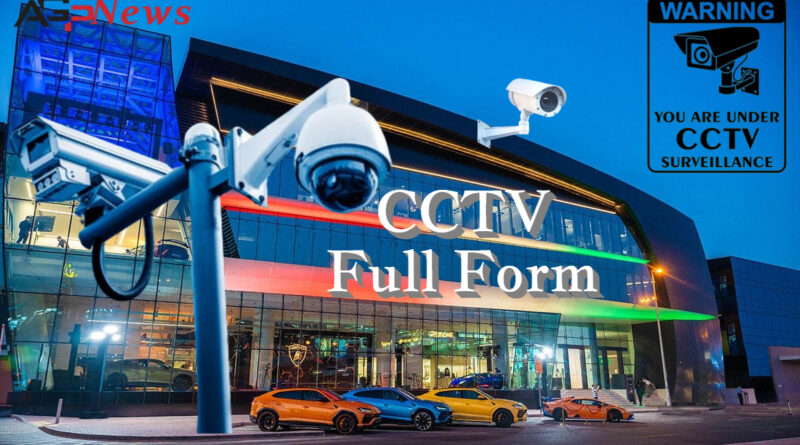CCTV Full Form: What is CCTV?
Understanding CCTV: Closed-circuit Television
CCTV Full Form: Closed-circuit Television (CCTV) represents a significant advancement in the modernization and security infrastructure of a country. Commonly installed in public places such as shopping malls, railway stations, banks, schools, hospitals, construction sites, and factories, CCTV systems play a crucial role in monitoring and maintaining security by keeping a close watch on activities in these areas.
CCTV Full Form: What is CCTV?
CCTV, or Closed-circuit Television, is a video monitoring system that acts as an intrusion detection system using video cameras and monitors for surveillance. The system can be wired or wireless, transmitting signals to a monitor for real-time viewing. Often referred to as video surveillance, the system begins its surveillance as soon as the video camera captures a signal, which is then displayed on the monitor.
CCTV Full Form: Uses of CCTV
CCTV systems are widely used for various monitoring purposes, including:
- Security: Monitoring out-of-hours emergencies and ensuring safety in public and private spaces.
- Crime Prevention: Deter and record criminal activities, providing evidence for investigations.
- Traffic Monitoring: Detecting congestion, monitoring road conditions, and noticing accidents.
- Workplace Safety: Keeping an eye on activities in factories, construction sites, and other workplaces to ensure compliance with safety regulations.
Components of CCTV Systems
A complete CCTV system comprises various elements, including video cameras, display monitors, and recording devices, all interconnected to provide continuous surveillance. The system can handle networks of any size and can be installed without the need for professional engineers. The setup of cameras and recording devices is often managed through specialized software. CCTV Full Form
Types of CCTV Cameras
CCTV cameras come in various types, each serving different purposes: CCTV Full Form
- Recording Cameras: Capture video footage and store it on hard drives or other media.
- Digital Video Recorders (DVR): Use storage devices to record video onto hard drives or other media.
- Monitoring Station Cameras: Connected to a monitoring station to provide real-time video feeds.
Why Use CCTV Surveillance?
CCTV systems offer numerous advantages: CCTV Full Form
- Real-time Recording and Transmission: Captures and transmits images in real-time, which is critical for security and monitoring.
- Crime Prevention and Evidence: Deterrent against criminal activities and provides valuable evidence for legal proceedings.
- Traffic and Safety Monitoring: Helps monitor traffic conditions, detect jams, and ensure road safety.
- Public and Private Security: Useful in public areas, law enforcement, and private institutions for enhanced security.
- Cost-effective and Efficient: More affordable and secure compared to traditional surveillance devices, with accurate imaging capabilities.
Benefits of CCTV
CCTV systems provide a range of benefits, including:
- High-quality Image and Sound: Delivers clear visuals and audio through connected cameras.
- Convenience: Ideal for monitoring significant locations like parks, business centers, airports, shopping malls, and restaurants.
- Emergency Use: Effective in managing emergency situations, saving time and resources.
- Public Safety: Enhances security in public spaces, aiding law enforcement and other institutions.
Conclusion
CCTV (CCTV Full Form) systems are invaluable for identifying and apprehending criminals, deterring crime, and providing crucial evidence. Their applications in public safety, traffic management, workplace monitoring, and more demonstrate their importance in modern security infrastructure. By offering real-time surveillance and recording, CCTV systems significantly contribute to maintaining safety and security across various environments.
FAQs about CCTV Full Form
What is CCTV?
CCTV stands for Closed-circuit Television, a video monitoring system used for security and surveillance.
How does CCTV work?
CCTV uses video cameras to capture footage, which is transmitted to monitors for real-time viewing or recording.
What are the primary uses of CCTV systems?
Security, traffic monitoring, workplace safety, and public safety.
What types of CCTV cameras are available?
Recording cameras, Digital Video Recorders (DVR), and monitoring station cameras.
What are the benefits of using CCTV surveillance?
Real-time monitoring, crime deterrence and evidence, traffic and safety management, cost-effectiveness, and high-quality imaging.




